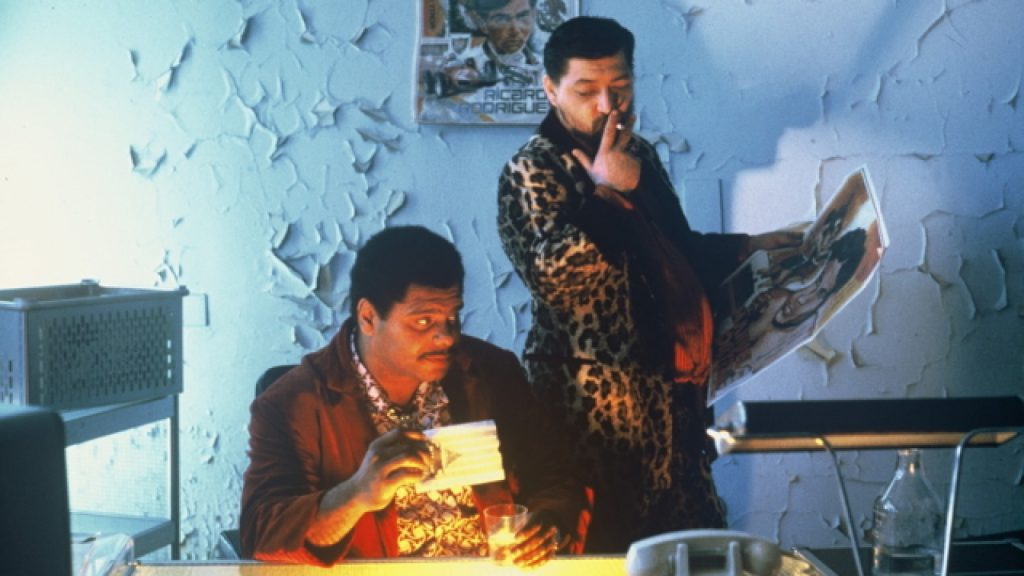
Wolf Gremm’s masterful ode to Rainer Werner Fassbinder showed just once on June 8th at International House as part of a new national re-release of a restored print. Despite my obsessive interest in Fassbinder this was the first time that I had seen this film from start to finish. Perhaps it was seeing the film clearly for the first time (I mean this literally since every other encounter that I had had with Kamikaze ‘89 had been on VHS) that I was able to truly observe and appreciate Gremm’s film. Kamikaze ‘89 is perhaps the campiest New German film I have seen outside of some of Werner Schroeter’s earliest shorts. And Gremm uses this camp much in the same manner as John Waters, constructing a satire that is all at once conscious and reflexive. The post-modern appropriation of logos and other visual signifiers is so abundant and so specifically American that the cultural synthesis between the U.S. and West Germany that informs so much of New German cinema is finally exploited to the last and laid to rest. Gremm applies the same “over-kill” tactics to his allegorical scrutinizing of WDR and it’s relationship with state funded cinema in Germany.
What was perhaps the most enjoyable part of the film was Fassbinder himself, turning in a performance as sleazy and graceless as Robert Mitchum’s turns as Philip Marlowe. This is Fassbinder at his best, chewing the scenery, reveling in the design of Gremm’s picture that recalls equally Godard’s Alphaville and Fassbinder’s own World On A Wire. Fassbinder’s natural chemistry with Günther Kaufmann (former lovers and long time collaborators) adds a more realistic and nuanced element to the comedic proceedings of Kamikaze ‘89. Though this natural chemistry reads as bittersweet in the context of Fassbinder’s death shortly after the film was completed.
I do not mean to give the impression that Kamikaze ‘89 is only enjoyable if one is immersed in the history of New German cinema. My friend who accompanied me to see the film enjoyed it very much without being a Fassbinder fanatic or German cinema aficionado. For as she keenly observed (and I am paraphrasing) Kamikaze ‘89 “had tremendous entertainment value”. The film is colorful, fast paced, unpredictable, kinetic, and lighthearted. And to top it all off the film climaxes with Fassbinder humping a giant image of Neil Armstrong mid-moonwalk, then turning and finishing his cigarette as the credits begin to roll. To quote my friend again, “It was beautiful”.
This review was written for the 2016 re-release of this film.
